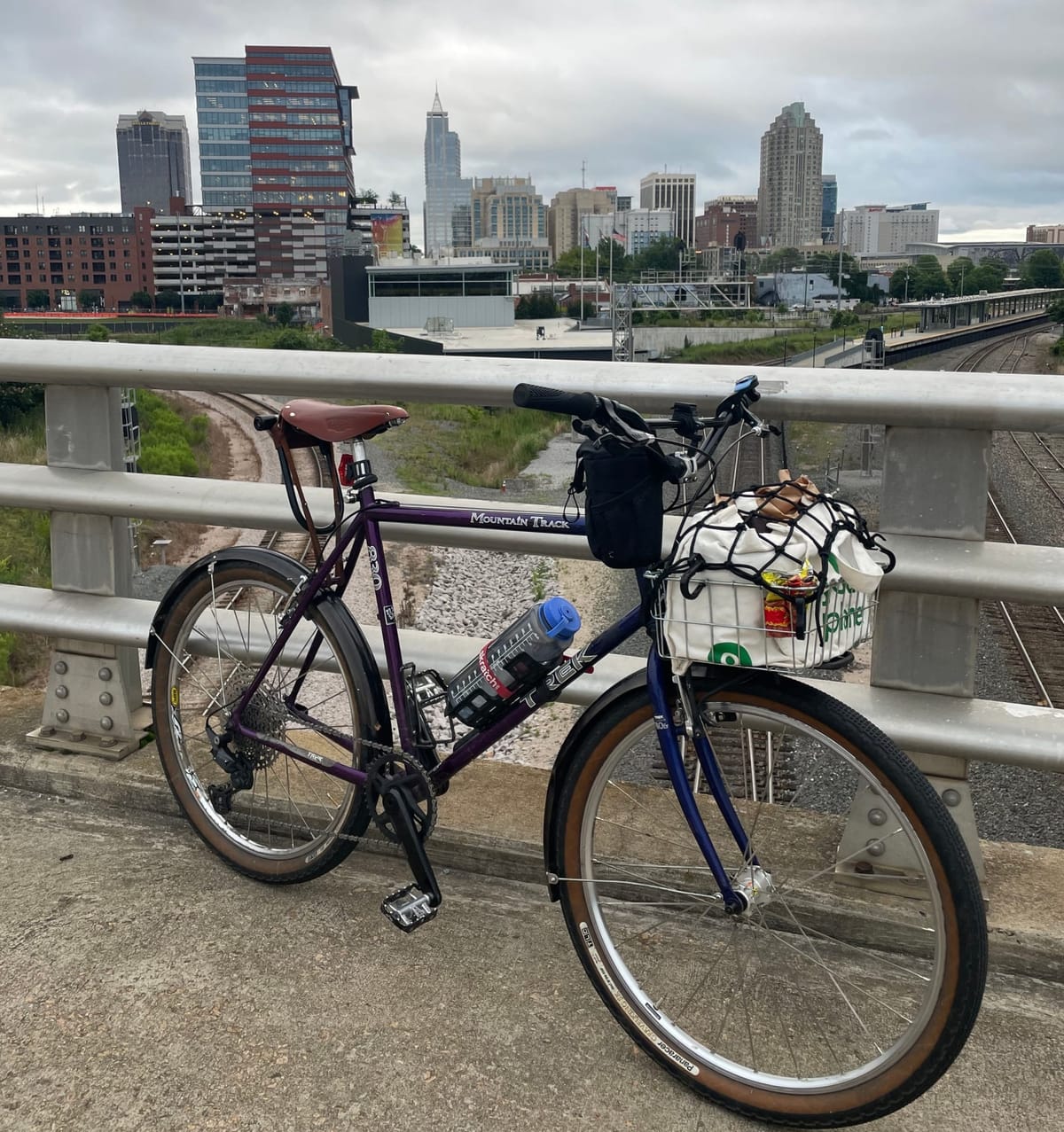Why Is Intentional Transit Important?

A city-dweller's opinion on why it matters how we move places. My hypothesis: intentionally limiting our transit options can create a deeper connection to the places we live in and the humans we live with.
First: let's define transit? Oxford weighs in:
tran·sit /ˈtranzət/ noun
1. the carrying of people, goods, or materials from one place to another.
Humans move everywhere. Everything is about movement. Everything is about transit. If you're a human and you stay in one place all day, you are likely sick or dead.
If so much of our life is based on the different places we go and what we do there, I argue it's equally important how you get there.
1a. By Bike (or e-Bike)
Naturally, I'm an advocate for transit by bike. This is The Bike Library Blog, after all. If you do three (3) errands by bike every week, you might be able to replace three days at the gym, where you may or may not spend 30 minutes of your precious daylight on a stationary bike. Why not double that efficiency and do groceries while you're at it? You might save some gym membership money while you're at it. A bike basket costs about 15% of a month's membership, and it'll last a whole lot longer.
Biking exposes you to the unfiltered, unsheltered reality you share with all the other citizens of whatever wonderful city you live in. It makes you one with your landscape. It gives you some ownership over it. It makes you realize the beautiful parts. It harshly reminds you of the not-so-beautiful parts.
1b. By Foot
Here's an activity: Think to yourself what you consider a "short" drive away. 15 minutes? 20 minutes?
Poke around on this site and see how far you can walk or bike in 20 minutes. It won't be as far as a car, but you might be surprised by how much is within that radius. You might also be surprised by how fun it is to invest in the coffee shop down the street, instead of the one across town.
(By the way, here's an article about why short drives are bad for your car. It's too perfect.)
- By Bus
Being around other people, especially people who aren't like you, can have a great effect on how you view the world.
Many of the problems in today's world are caused by misunderstandings, tribalism, and xenophobia.
None of these aggravating factors are assuaged by going everywhere in your car, with your music, at your pace, on your schedule. Building intentional inconvenience into transit makes it more meaningful.
- By Uber
I have yet to strike up a conversation with an Uber driver and walk away from it uninspired or unenlightened. I drove Uber for a while, strictly because I was so inspired by the stories I heard as a passenger. Besides the convenience of a rideshare (and corresponding cost) I think there's a real opportunity for human connection that is harder to find in other arenas.
I'd like to note that this opinion hinges on briefly suspending the "need" to own a house, considering 1) owning a house often puts you squarely in a car-dependent lifestyle, due to affordable single-family housing typically being outside urban areas, 2) that "need" is a very American construct, and 3) it's out of the question for most young professionals, especially civilians and single people who often inhabit cities and are the intended target audience for this article.